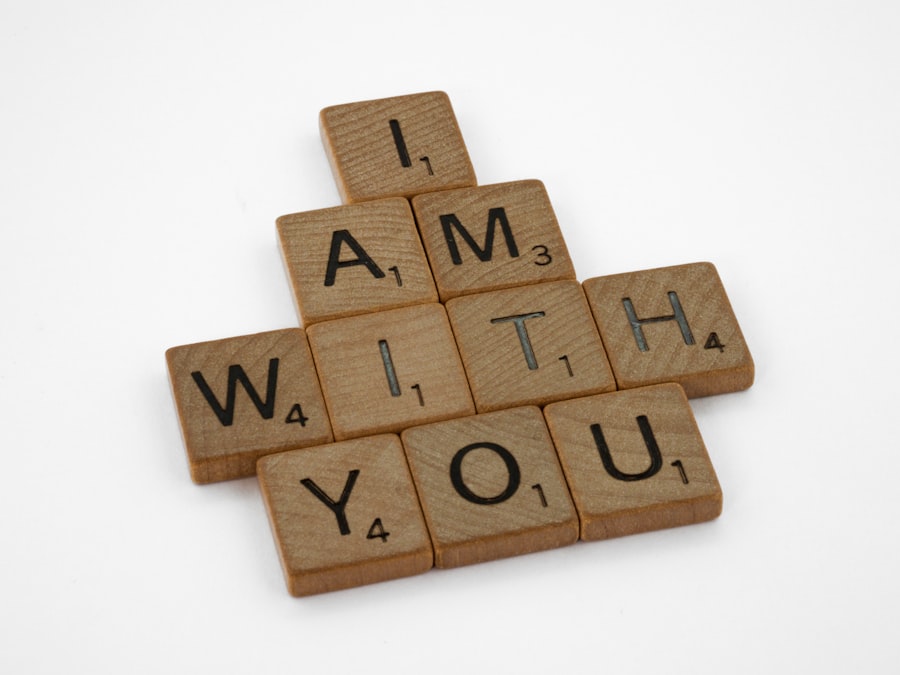You may have experienced it yourself: a sudden chill running down your spine, the unmistakable feeling of being watched, or the eerie sensation that someone—or something—else is in the room with you. This unsettling sensation, often described as a presence, can be both disconcerting and intriguing. It can occur in various settings, from the solitude of your home to the bustling atmosphere of a crowded street.
While some dismiss it as mere imagination or a trick of the mind, others find it deeply unsettling, leading to questions about its origins and implications. The sensation of feeling a presence is not just a personal experience; it is a phenomenon that has intrigued humanity for centuries. From ghost stories told around campfires to modern-day accounts shared on social media, the feeling of an unseen entity has woven itself into the fabric of human experience.
As you delve deeper into this phenomenon, you may find that it encompasses a wide range of interpretations, from scientific explanations to cultural beliefs. Understanding this sensation can provide insight into not only your own experiences but also the broader human condition.
Key Takeaways
- Feeling a presence is an unsettling sensation that many people have experienced.
- The sensation can be explained by science, psychology, and cultural/historical perspectives.
- Stress and anxiety can play a role in experiencing the sensation.
- Paranormal explanations for feeling a presence exist, but psychological and scientific explanations are more widely accepted.
- Coping strategies and future research are important for understanding and dealing with the phenomenon.
The Science Behind Feeling a Presence
When you feel an inexplicable presence, your brain is likely processing a complex array of stimuli. Neuroscience suggests that this sensation may arise from the brain’s interpretation of sensory information, particularly in situations where visual or auditory cues are limited. For instance, when you are in a dimly lit room or an unfamiliar environment, your brain may become hyper-aware, leading to heightened sensitivity to subtle changes in your surroundings.
This heightened state can trigger feelings of unease and the perception that someone is watching you. Research has shown that certain areas of the brain are particularly active when individuals report feeling a presence. The temporoparietal junction, for example, plays a crucial role in integrating sensory information and spatial awareness.
When this area is stimulated—whether through external factors or internal psychological states—it can lead to the sensation of an entity nearby. This scientific perspective offers a rational explanation for what many perceive as supernatural experiences, suggesting that our brains are wired to interpret ambiguous stimuli in ways that can evoke feelings of presence.
Cultural and Historical Perspectives on the Sensation

Throughout history, cultures around the world have interpreted the sensation of feeling a presence in various ways. In many societies, this experience is often linked to spiritual beliefs or encounters with the supernatural. For instance, in some Indigenous cultures, feeling a presence may be seen as a sign from ancestors or spirits, serving as a reminder of their ongoing connection to the living.
In these contexts, such sensations are not merely dismissed but are embraced as part of a larger spiritual framework. In contrast, Western cultures have often approached this phenomenon with skepticism, attributing it to psychological or neurological factors. However, even within these societies, there are rich traditions of ghost stories and folklore that reflect a deep-seated fascination with the idea of spirits and otherworldly beings.
As you explore these cultural narratives, you may find that they reveal much about humanity’s collective fears and hopes regarding life after death and the unknown.
Psychological Explanations for Feeling a Presence
| Psychological Explanations for Feeling a Presence |
|---|
| 1. Hypnagogic and Hypnopompic Experiences |
| 2. Sensory Deprivation |
| 3. Temporal Lobe Epilepsy |
| 4. Schizophrenia and Psychosis |
| 5. Stress and Anxiety |
From a psychological standpoint, feeling a presence can be linked to various mental states and conditions. For instance, individuals experiencing high levels of stress or anxiety may be more prone to this sensation. When your mind is preoccupied with worries or fears, it can create an environment ripe for misinterpretation of sensory information.
In such cases, your brain might fill in gaps with imagined entities, leading to the perception of an unseen presence.
These conditions may alter your perception of reality and lead to vivid hallucinations or feelings of detachment from oneself and surroundings.
Understanding these psychological factors can help demystify the sensation and provide context for those who experience it regularly.
The Role of Stress and Anxiety in the Sensation
Stress and anxiety play significant roles in shaping your perception of reality. When you are under pressure—whether from work, relationships, or other life challenges—your body enters a heightened state of alertness. This state can amplify your senses and make you more attuned to your environment.
As a result, you may become more susceptible to feelings of unease or the sensation that someone is watching you. Moreover, chronic stress can lead to fatigue and sleep disturbances, which further exacerbate feelings of anxiety. When you are tired or sleep-deprived, your cognitive functions may become impaired, making it easier for your mind to conjure up sensations that aren’t grounded in reality.
Recognizing the connection between stress and the feeling of presence can empower you to address underlying issues and develop healthier coping mechanisms.
Paranormal Explanations for Feeling a Presence

For many people, the sensation of feeling a presence transcends scientific explanations and delves into the realm of the paranormal. You might find yourself drawn to stories of ghosts or spirits that linger in certain locations, often tied to tragic events or unresolved emotions. In these narratives, feeling a presence is often interpreted as an encounter with an otherworldly being seeking connection or closure.
Paranormal enthusiasts argue that these experiences are valid and deserve exploration beyond conventional scientific frameworks. They suggest that certain locations—such as old buildings or battlefields—carry residual energy from past events, which can manifest as feelings of presence for those sensitive enough to perceive them. While skeptics may dismiss these claims as mere superstition, they highlight an enduring human fascination with what lies beyond our understanding.
Case Studies of Individuals Who Have Experienced the Sensation
To better understand the phenomenon of feeling a presence, consider examining case studies from individuals who have reported such experiences. One notable account comes from a woman who described feeling an overwhelming sense of being watched while alone in her home. Initially dismissing it as paranoia, she later learned that her house had a history of tragic events.
This revelation led her to explore her feelings further and ultimately embrace them as part of her personal journey. Another case involves a man who experienced frequent sensations of presence during periods of intense stress at work. He reported feeling as though someone was standing behind him during late-night hours spent at the office.
After seeking therapy and addressing his anxiety levels, he found that these sensations diminished significantly. These case studies illustrate how personal context and emotional states can shape one’s experience of feeling a presence.
Coping Strategies for Dealing with the Unsettling Sensation
If you find yourself grappling with unsettling sensations of presence, there are several coping strategies you can employ to alleviate discomfort. First and foremost, grounding techniques can help anchor you in reality when feelings become overwhelming. Focusing on your breath or engaging in mindfulness exercises can redirect your attention away from intrusive thoughts and sensations.
Additionally, creating a comforting environment can also mitigate feelings of unease. Surrounding yourself with familiar objects or engaging in activities that bring you joy can foster a sense of safety and security. If you find that stress is contributing to these sensations, consider incorporating relaxation techniques into your daily routine—such as yoga or meditation—to promote overall well-being.
The Connection Between Feeling a Presence and Sleep Paralysis
Interestingly, there is a notable connection between feeling a presence and sleep paralysis—a phenomenon where individuals find themselves temporarily unable to move upon waking or falling asleep. During sleep paralysis episodes, many report experiencing vivid hallucinations or sensations of being watched by an unseen entity. This overlap suggests that both experiences may stem from similar neurological processes related to sleep cycles and consciousness.
Understanding this connection can provide valuable insight into your own experiences with feeling a presence. If you have encountered sleep paralysis alongside sensations of presence, recognizing this link may help demystify both phenomena and reduce fear associated with them.
How Technology and Virtual Reality Can Induce the Sensation
In today’s digital age, technology has introduced new avenues for experiencing sensations akin to feeling a presence. Virtual reality (VR) environments can create immersive experiences that evoke strong emotional responses and perceptions of being watched or accompanied by unseen entities. As you navigate through virtual worlds designed to elicit fear or suspense, your brain may respond similarly to real-life encounters with presence.
Moreover, advancements in technology have led to the development of apps and devices aimed at simulating paranormal experiences for entertainment purposes. While these innovations can be thrilling, they also raise questions about how technology influences our perceptions and emotional responses in both virtual and real-world contexts.
Conclusion and Future Research on the Phenomenon
As you reflect on the multifaceted nature of feeling a presence, it becomes clear that this phenomenon encompasses a rich tapestry of scientific inquiry, cultural beliefs, psychological insights, and personal experiences. While much has been explored regarding its origins and implications, there remains ample room for future research to deepen our understanding. Investigating how various factors—such as environmental conditions, individual psychology, and cultural context—interact to shape experiences of presence could yield valuable insights into human perception and consciousness.
As society continues to grapple with questions surrounding reality and existence, exploring this unsettling sensation may ultimately lead to greater awareness of our shared human experience and the mysteries that lie beyond our understanding.
Feeling a presence behind you, even when no one is there, is a phenomenon that has intrigued both scientists and paranormal enthusiasts alike. This sensation can often be attributed to psychological and neurological factors, such as heightened awareness or the brain’s interpretation of sensory information. For those interested in exploring the scientific explanations behind such eerie experiences, an article on Freaky Science delves into the intricacies of this phenomenon. You can read more about it by visiting Freaky Science, where they explore the intersection of science and the supernatural.
WATCH THIS! 🧠 The Brain Hack That Makes You See Ghosts!
FAQs
What is the feeling of a presence behind me?
The feeling of a presence behind you is a common experience where individuals feel as though someone or something is nearby, even though there may be no physical evidence of such a presence.
What causes the feeling of a presence behind me?
The feeling of a presence behind you can be caused by a variety of factors, including psychological and physiological reasons. These can include heightened anxiety, stress, fatigue, or even sensory illusions.
Is the feeling of a presence behind me related to the supernatural or paranormal?
While some individuals may attribute the feeling of a presence behind them to supernatural or paranormal causes, there is no scientific evidence to support these claims. The feeling is more likely to be a result of psychological or physiological factors.
Can the feeling of a presence behind me be a sign of a medical condition?
In some cases, the feeling of a presence behind you can be associated with certain medical conditions, such as anxiety disorders, schizophrenia, or neurological disorders. It is important to consult a medical professional if you are experiencing persistent feelings of a presence behind you.
How can I alleviate the feeling of a presence behind me?
To alleviate the feeling of a presence behind you, it can be helpful to address any underlying psychological or physiological factors that may be contributing to the sensation. This can include practicing stress-reducing techniques, getting enough rest, and seeking professional help if necessary.
